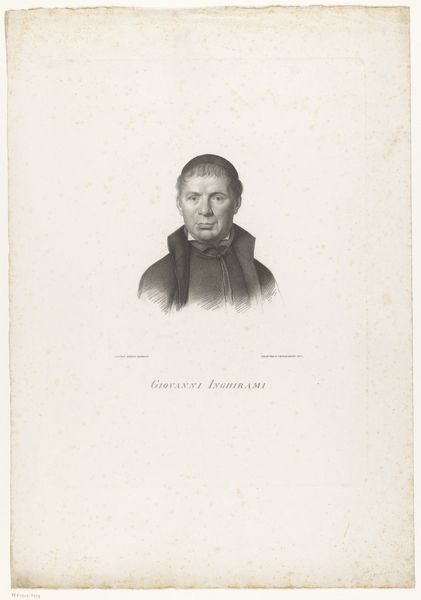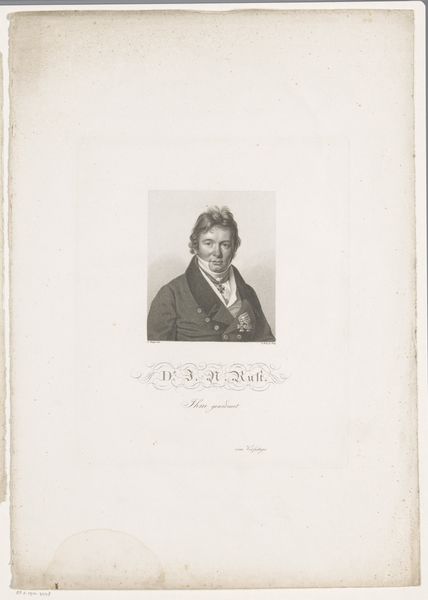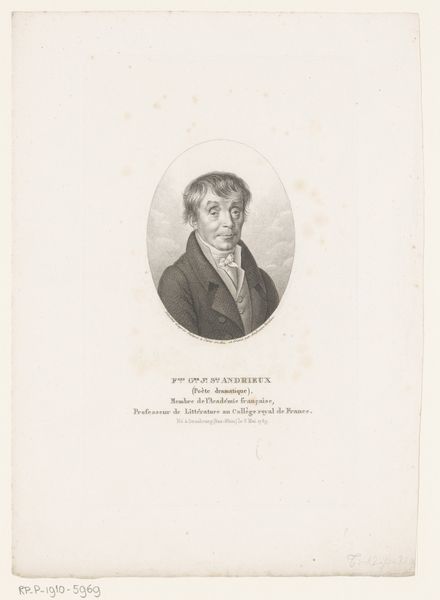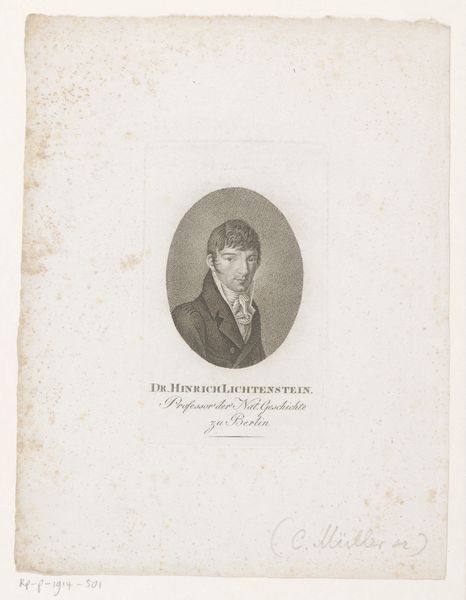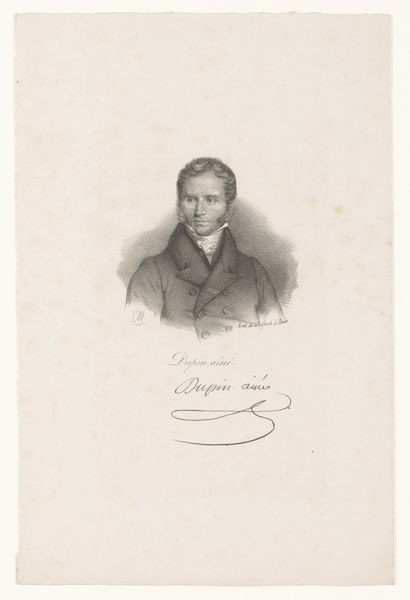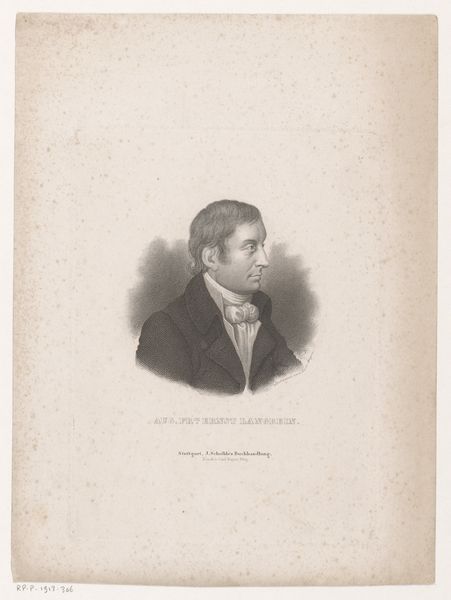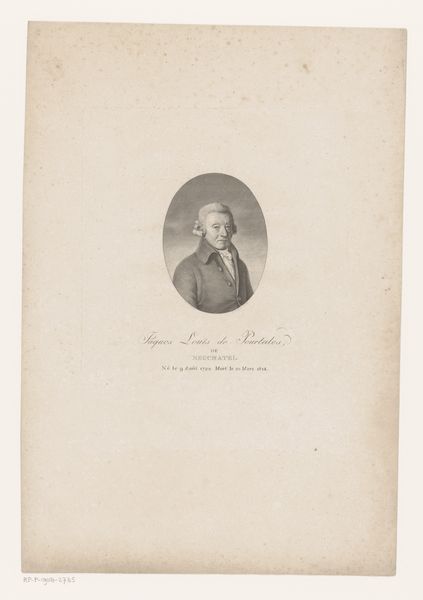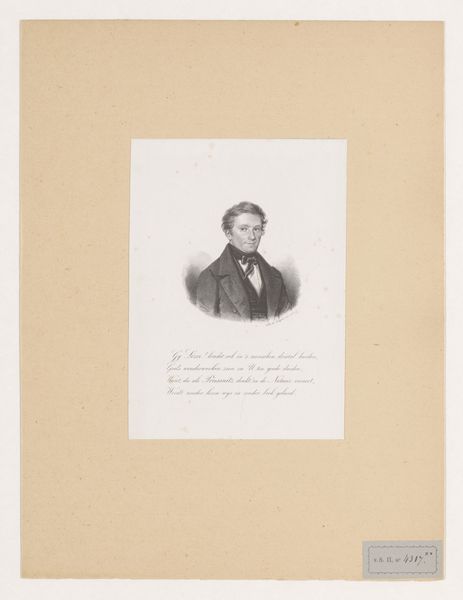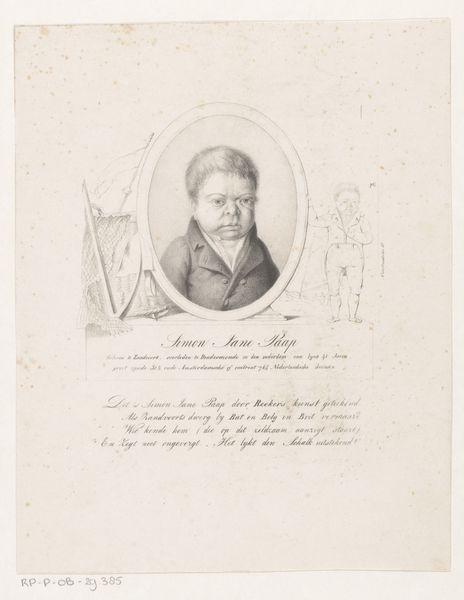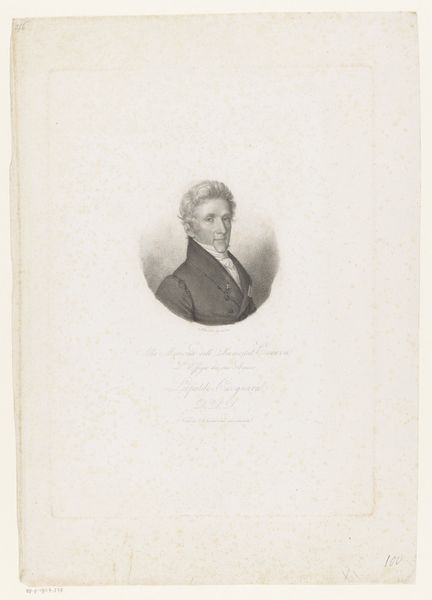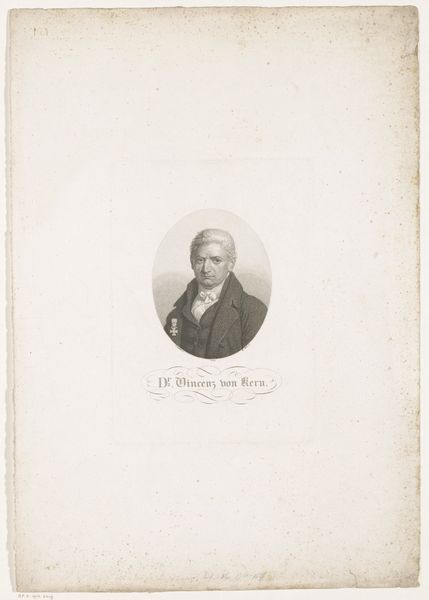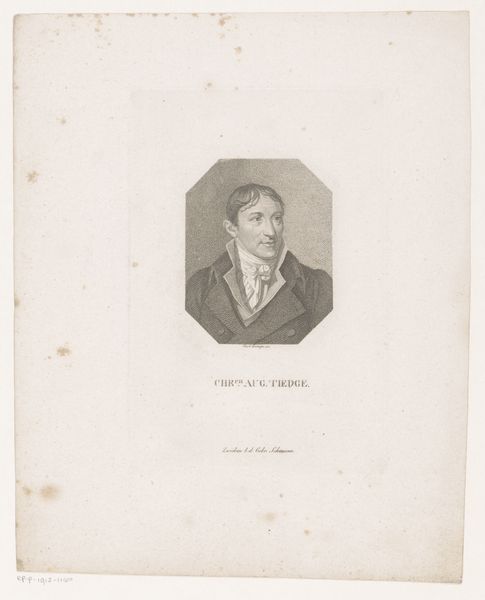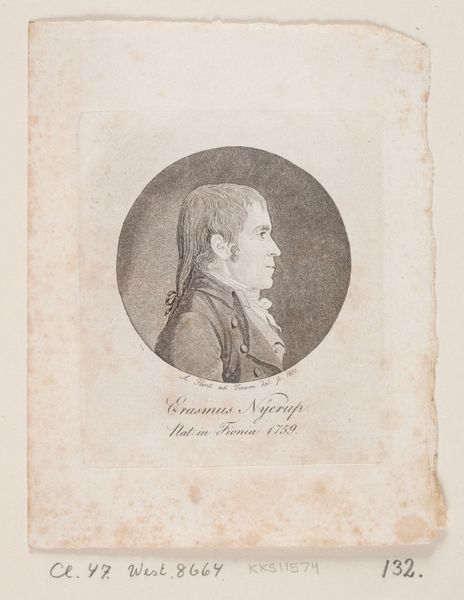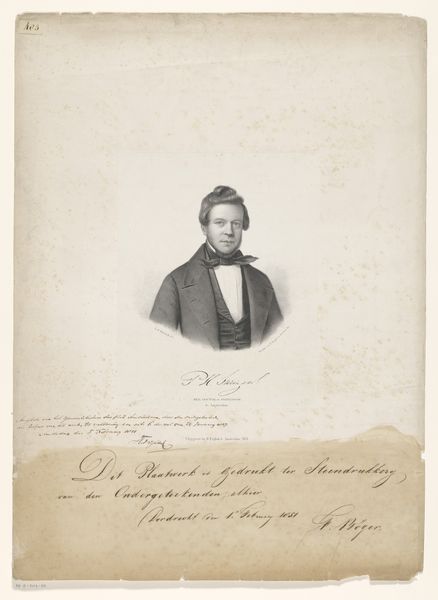
engraving
#
portrait
#
neoclacissism
#
old engraving style
#
history-painting
#
engraving
Dimensions: height 143 mm, width 101 mm
Copyright: Rijks Museum: Open Domain
This portrait of Joannes de Riccardi was created by Christoph Veit Schellhorn in the first half of the 19th century, using what looks to be an engraving technique on paper. The fine lines and precise details suggest a process of meticulous labor, where the artist would have used specialized tools to carve the image into a metal plate, which then transferred the ink to paper. The very nature of engraving implies replication, aligning it with the rise of industrialization and the increasing demand for reproduced imagery. In terms of social context, the choice of engraving allowed for wider distribution of the portrait, which connects to the subject's title below, "Eques" or knight, and the suggestion that he was a propagator of the arts, indicating a status and role within society. Considering the time, materials, and skill involved, it reminds us that even within the realm of portraiture, the method of production profoundly influences how we understand the artwork's significance.
Comments
No comments
Be the first to comment and join the conversation on the ultimate creative platform.
